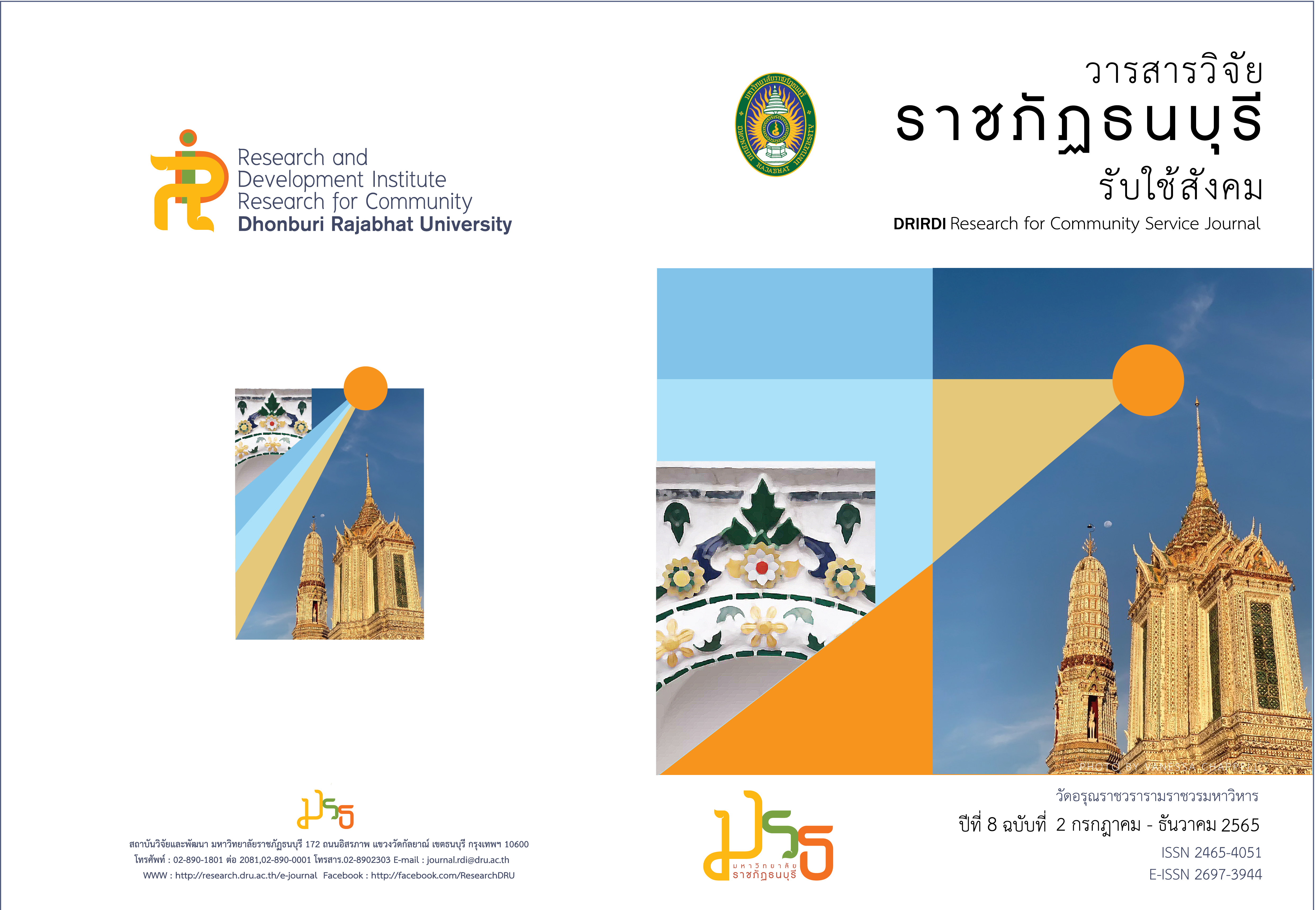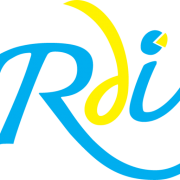Learning Activity Management in According to the Problem-Based Learning for Enhancing Students’ Learning Achievements and Problem-Solving Skills toward Science
Keywords:
Learning Activity Management, Problem-Based Learning, Problem Solving Skills toward scienceAbstract
The purposes of this research study were 1) to develop learning activity management with the Problem-based learning (PBL) instructional lesson plans with the efficiency (E1/E2) at the determining criteria as 80/80, 2) to compare students’ learning achievements of their post assessing test and the criteria of 80% and 3) to compare student’s problem-solving skills toward science of their post assessing test and the criteria of 80%. Research with a target size of 17 Prathomsuksa 6 from Ban Thamuang School of Selaphum Amphur Roi Et Province with the purposive sampling technique was selected. Research using 1) the 6-main instructional PBL method’s lesson plans to management of the activity-based learning with instrument was a 5-rating scale and indicated that of 4.74, 2) the 30-item learning achievement assessing test with IOC indicated between that 0.60-1.00, difficulty index 0.36-0.62, discrimination index 0.28-0.62, reliability that 0.81 and 3) the 20-item problem-solving skills toward science with instrument was a 5-rating scale and indicated that of 4.82, basic data analyzed with the average mean, standard deviation, percentage and Statistically significant t-test for one sample were analyzed, The results indicated that:
- The results have found that the efficiency of the processing performance and the performance results (E1/E2) of the PBL indicated that of 85.48/84.44, which was higher than standardized criteria of 80/80.
- Average mean score of learning achievements of their post - test was higher than 80% with the PBL instructional method were differentiated that evidence of statistically significant at the .01 level.
- Average mean score of problem-solving skills toward science of their post - test was higher than 80% with the PBL instructional method were differentiated that evidence of statistically significant at the .01 level.
References
ฉันทรุจี พรมเกตุ. (2556). รายงานผลการพัฒนาการจัดกิจกรรมการเรียนรู้แบบใช้ปัญหาเป็นฐาน กลุ่มสาระการเรียนรู้วิทยาศาสตร์ เรื่อง ชีวิตและสิ่งแวดล้อมของนักเรียนชั้นมัธยมศึกษาปีที่ 3 โรงเรียนเทศบาลวัดสระทอง สำนักงานเขตพื้นที่การศึกษามัธยมศึกษาเขต 27 ร้อยเอ็ด. มหาสารคาม : มหาวิทยาลัยราชภัฏมหาสารคาม.
ทิวาวรรณ จิตตะภาค. (2548). การศึกษาผลสัมฤทธิ์ทางการเรียนและทักษะการสื่อสารด้วยการจัดการเรียนรู้วิทยาศาสตร์แบบใช้ปัญหาเป็นฐาน. วิทยานิพนธ์ ศึกษาศาสตร์มหาบัณฑิต : มหาวิทยาลัยศรีนครินทรวิโรฒ.
ทิศนา แขมมณี. (2555). ศาสตร์การสอน : องค์ความรู้เพื่อการจัดกระบวนการเรียนรู้ที่มีประสิทธิภาพ. กรุงเทพฯ : จุฬาลงกรณ์มหาวิทยาลัย.
ธิดารัตน์ กันยะมี และคณะ. (2558). การจัดการเรียนรู้โดยใช้ปัญหาเป็นฐาน เรื่อง อาหารกับการดำรงชีวิตที่มีต่อผลสัมฤทธิ์ทางการเรียนและความสามารถในการแก้ปัญหาทางวิทยาศาสตร์ของนักเรียนชั้นมัธยมศึกษาปีที่ 2. วิทยานิพนธ์
ครุศาสตร์มหาบัณฑิต : มหาวิทยาลัยราชภัฏพิบูลสงคราม.
วิจารณ์ พานิช. (2555). วิถีสร้างการเรียนรู้เพื่อศิษย์ในศตวรรษที่ 21. กรุงเทพฯ : ตถาตาพับลิเคชัน.
วรรณภา เหล่าไพศาลพงษ์. (2554). การศึกษาความสามารถในการคิดแก้ปัญหาและความสนใจในการเรียนภาษาไทยของนักเรียนชั้นมัธยมศึกษาปีที่ 3 ที่จัดการเรียนรู้แบบกระบวนการแก้ปัญหากับการจัดการเรียนรู้ตามคู่มือครู. ปริญญานิพนธ์ ศึกษาศาสตร์มหาบัณฑิต : มหาวิทยาลัยศรีนครินทรวิโรฒ.
วรพจน์ วงศ์กิจรุ่งเรือง. (2554). ทักษะแห่งอนาคตใหม่. การศึกษาเพื่อศตวรรษที่ 21. สืบค้นเมื่อวันที่ 20 มกราคม 2561
จาก : แหล่งที่มา http://openworlds.in.th/books/21st-century-skills.
ศิขรินทร์ธาร โคตรสิงห์ และคณะ. (2555). การพัฒนารูปแบบการสอนวิทยาศาสตร์โดยใช้ปัญหาเป็นฐานสำหรับพัฒนาทักษะกระบวนการคิดแก้ปัญหาของนักเรียนชั้นมัธยมศึกษาปีที่ 1. วิทยานิพนธ์ ศึกษาศาสตร์มหาบัณฑิต : มหาวิทยาลัยมหาสารคาม.
สำนักงานเลขาธิการสภาการศึกษา. (2550). กรอบทิศทางการพัฒนาการศึกษาในช่วงแผนพัฒนาเศรษฐกิจและสังคมแห่งชาติ ฉบับที่ 10 (พ.ศ. 2550-2554) ที่สอดคล้องกับแผนการศึกษาแห่งชาติ (พ.ศ.2545-2549). กรุงเทพฯ : โรงพิมพ์แห่งจุฬาลงกรณ์มหาวิทยาลัย.
George Manthey. (2008). “Attaining 21st century skills in a complex world.” Leadership 38,2 (November 2008): 15. http:// Inventors about.com/od/lessonplans/a/crativity.htm [2008, June 16]. Information Systems, Bled, Slovenia, 27-29 June. 2001. Journal of Service Research 24. 2001.
Weir, John Joseph. (1974). “Problem Solving is Everybody’s Problem”, The Science Teacher. 4 (April 1974), 16-18.
Downloads
Published
How to Cite
Issue
Section
License
Copyright (c) 2022 Dhonburi Rajabhat University

This work is licensed under a Creative Commons Attribution-NonCommercial-NoDerivatives 4.0 International License.
The articles that have been published are the copyright of Rajabhat Dhonburi University.
The opinions expressed in each article in this academic journal are the personal views of the respective authors and are not related to Rajabhat Dhonburi University or any other personnel within the university. However, all responsibilities for the entire content of each article belong to the respective authors. If there are any errors, each author will take responsibility for their own article independently.







